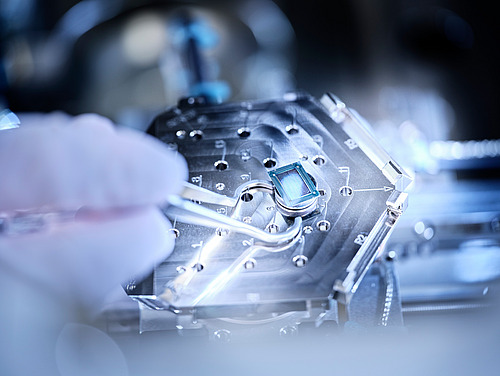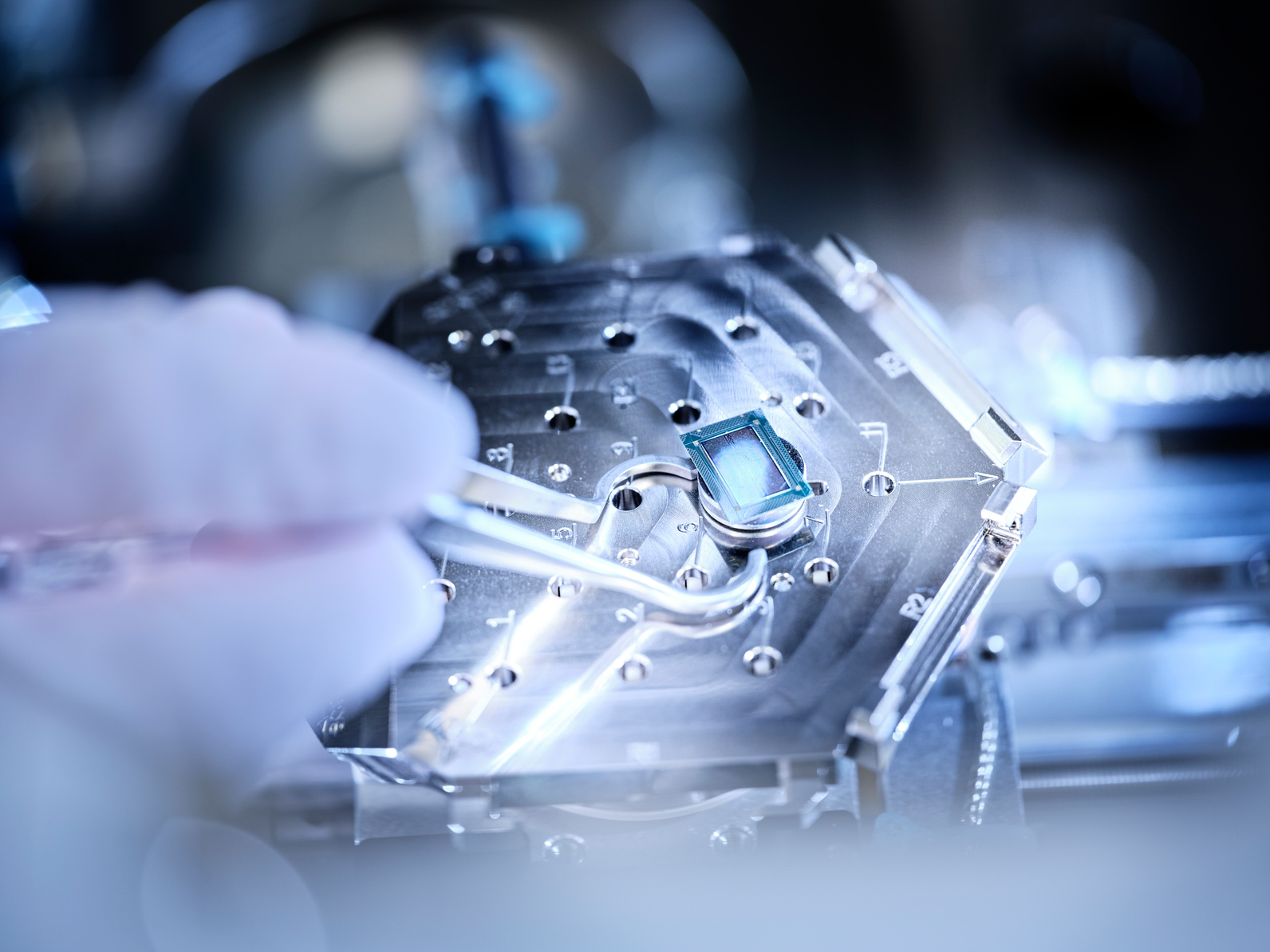The German Research Foundation (DFG) has now granted Osnabrück University additional funding for its research. "Hardly anyone noticed, but in 2019 a small shock went through the world of computer science research," says Prof. Dr. Olaf Spinczyk, head of the Embedded Software Systems working group at Osnabrück University. The processor manufacturer Intel introduced memory modules that do not lose their contents when switched off. Even though the modules were initially only available for servers, it was possible to imagine laptops that could remain in standby mode indefinitely without consuming power and restart at lightning speed, as the memory content is still available when restarting.
This sparked the imagination of scientists: do we still need hard disks/SSDs and files at all? What are the disadvantages compared to conventional storage?
The French start-up UPMEM also launched an innovation on the market: memory modules that can also calculate. Hundreds of small processors are built into the chips, which process data in parallel. The memory calculates itself, so to speak, which can speed up applications by a factor of ten to one hundred - other applications, on the other hand, were slowed down massively. But how is it decided what classic processors and what the memory should calculate?
Developments in the field of main memory have been so extensive and rapid that Prof. Olaf Spinczyk, together with three colleagues from different areas of computer science, proposed the establishment of a priority program "Disruptive Main Memory Technologies" to the German Research Foundation (DFG) at the end of 2020. The Germany-wide program is currently entering its second three-year funding period. The DFG is providing around € 6.3 million for each period.
The program is scientifically coordinated by Prof. Spinczyk at Osnabrück University, where a central hardware platform for the experiments of the 14 research projects from all over Germany is also operated.
The SMAUG sub-project, which Spinczyk is leading together with Dr. Birte Friesel, is concerned with the question of how the properties of new storage technologies can be modeled in a compact, comprehensible and sufficiently accurate way. "In the future, such models will be an important prerequisite for the development of efficient system software, for example for operating systems such as Android/iOS or for databases, without which social media, online banking and much more would be inconceivable," says Dr. Friesel.
The aim is to create the models automatically and use them in operation in order to link applications and data at all times with precisely the storage types and system components that guarantee the desired system behavior, for example fast response or reliability. In the second funding period, the approach will be implemented and evaluated experimentally on a research operating system.
Further information for editors:
Prof. Dr.-Ing Olaf Spinczyk, Osnabrück University
Institute of Computer Science
olaf.spinczyk@uni-osnabrueck.de





